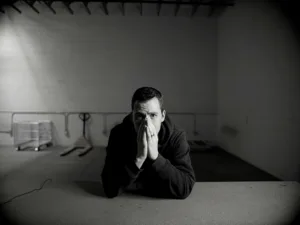Taken in the context of human history, men are “supposed” to have little or no need for psychotherapy.
Men have long been defined as the bread-winner, hunting down the opportunities needed to make life possible. Warring for their families, tribes, and nations to maintain the safety of the community. Men often are given more respect than women as a result of these needed roles. As a consequence, the behavior of men in these roles is seldom questioned.
In an ironic twist, male emotions tend to be questioned to create new behavior.
Too often men hear and see encouragement to be vulnerable, sensitive, and emotional in ways that mimic female behaviors. There is something obvious and internal that just doesn’t feel right about that. It takes more work with a psychotherapist to allow a man to access his depth and healthy masculinity.
Traditionally, the work of psychology has been viewed as a panacea for the ills of women, and of little comfort to men.
When a man sits to talk, he removes the “action” from his profile and puts himself in a passive role. The relaxed role contradicts everything taught about how a man defines himself. These prescribed norms of men and women can be seen in literature, movies, and television.
Conformist gender roles are starting to be seen as often problematic and cultural expectations are changing. Men are finding the reality of a situation requires they act in ways to deepen their understanding of gender and masculinity.
In the world of psychotherapy, the days of masculinity as a stoic, unspoken factor in treatment are coming to an end.
Psychology, Anthropology, and Modern Brain Science in a multidisciplinary approach have helped men define themselves in ways that meet the demands of modern relationships, family and workplace needs.
The approach gives men an understanding of certain actions, thoughts, and feelings in new ways with respect to traditional masculinity. Much hard work remains to establish perceptions of routine treatments as a regular part of the male journey to fulfillment.
As society changes the workplace and relationship role expectations of men, new ways to deal with mental health issues make it easier for men to discuss their masculinity and relationships with others.
Psychotherapy helps create healthier families and communities with help for those who are suffering. Both the man and the woman can benefit from therapy.
If you are currently seeking psychotherapy, you can book an appointment with Denver Men’s Therapy easily right here.






